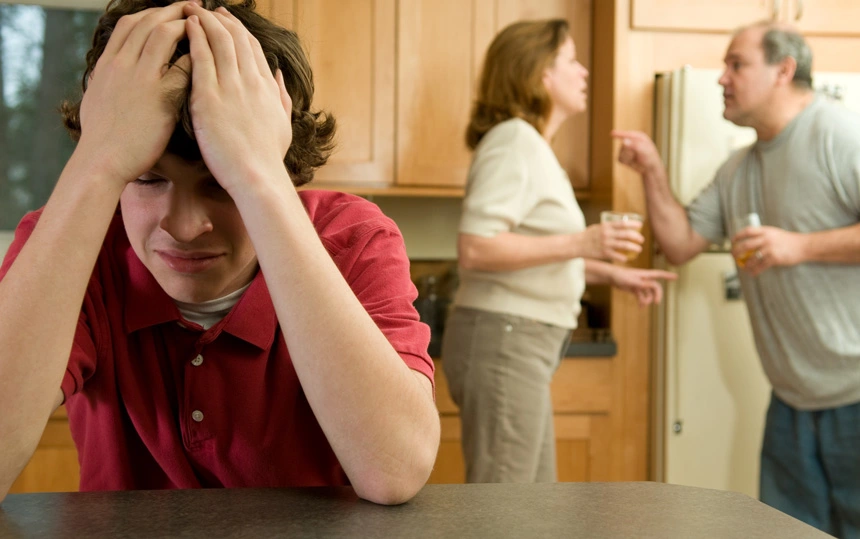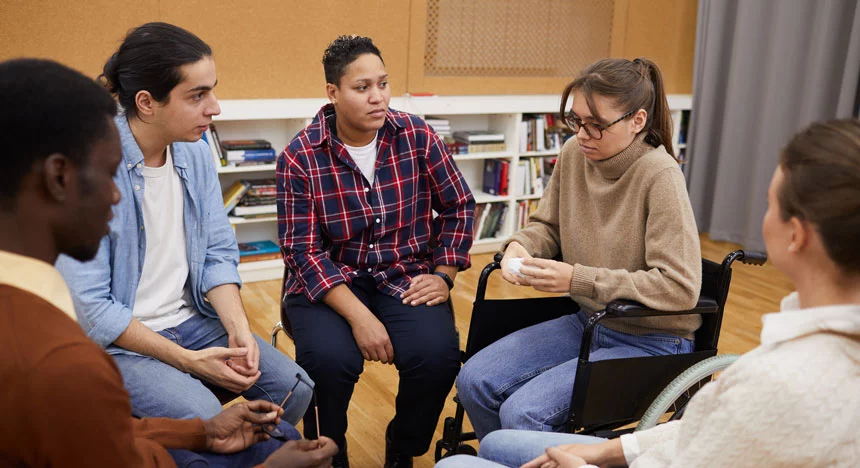Understanding Adult Children of Alcoholics: Common Traits and Self-Care
Table of Contents
- Understanding Adult Children of Alcoholics: Common Traits and Self-Care
- How Common is Alcoholism In US Families?
- How Does Parental Alcoholism Affect An Adult Child?
- Alcoholics Affect All the People in Their Life
- Common Personality Traits Among Adult Children of Alcoholics
- How Alcoholism Affects Families
- Self-Care For Adult Children of Alcoholics
- Are Adult Children Of Alcoholics More Likely To Abuse Alcohol?
- A Support Group for Individuals with Alcoholic Parents
- FAQs on Adult Children of Alcoholics
- Find Help For Your Alcohol Use Now
Alcoholic families are often dysfunctional families. Although adult children of alcoholic parents can and do have a range of experiences, they often experience mental health effects of some kind. These effects span long into adulthood and can impact areas of a person’s life that one may not expect. So, what are the effects of having a parent with alcohol use disorder, and how can an adult child of an alcoholic parent protect their own well-being?
Whether you’re the adult child of an alcoholic parent yourself or know someone who is, here’s what you need to know about adult children of alcoholics, as well as how self-care can help you thrive and move past common challenges.
Keep reading to find out more, and if you are struggling, know that help is here!
How Common is Alcoholism In US Families?
First, you aren’t alone if you are the child of an alcoholic parent. Unfortunately, many children in the United States grow up with parents who struggle with the use of alcohol and other drugs.
According to the Substance Abuse and Mental Health Services Administration (SAMHSA), around 7.5 million kids aged 17 or younger in the US live in households consisting of at least one parent who experiences an alcohol use disorder. That is around 10.5% of the population. For those aged 12-17 only, the percentage is even higher, at 11.3%.

These numbers are based on statistics from 2009-2014, and exact statistics may vary by year. It is relevant to note that this number may be higher now, with known increasing rates of alcohol use disorder.
This indicates a clear problem. Research also reveals a range of different negative health outcomes that can occur for those who grew up in a household with alcoholic parents.
The Various Experiences of Adult Children of Alcoholics
As we discussed, those with one or more parents affected by alcoholism might have various experiences, all of which are valid. You may have:
- A parent who recovered from alcohol use disorder for a long period of time and relapsed.
- A parent who has had an active alcohol use disorder for all or most of their life and is currently struggling.
- A parent who had an active alcohol use disorder when you were a child but is currently in remission.
- A parent who experienced the onset of an alcohol use disorder later in life.
Regardless of your unique or personal circumstances, parental alcohol use has an impact.
How Does Parental Alcoholism Affect An Adult Child?
The effects of adverse childhood experiences often persist into a person’s adulthood. Substance abuse among family members is most certainly an adverse experience that can come with consequences. In fact, there is extensive research on the topic.
Here are some commonalities among children of alcoholics:
A Higher Risk of Abuse and Neglect
The SAMHSA website suggests that children who grow up in households with a parent who had a substance use disorder are more likely to have experienced abuse or neglect. Abuse and neglect can come in many different forms.
Less Support at Home
When a parent engages in alcohol or drug abuse, it often means that children have less support at home. This can have an impact emotionally as well as developmentally. Problems with verbal and cognitive skills are even more common among kids with alcoholic parents.
Peer-reviewed studies also say that it is more likely for children to grow up with a low socioeconomic status (SES) if their parent has a substance use disorder. This makes sense, as low SES is a risk factor for substance abuse and other forms of mental illness.
Unstable Intimate Relationships
Our first close relationships in life are typically with our family members. Adult children of alcoholics may find it difficult to have healthy relationships in adulthood. This can include romantic relationships as well as other relationships.
Healthy communication may not have been modeled in their early years, which leads adult children of alcoholics to struggle with communication later on. Furthermore, insecure attachment is associated with the children of parents living with alcohol use disorder.
Mental Health Effects
Adult children of alcoholics are at a greater risk for low self-esteem as well as various forms of mental illness. Mental health conditions more likely to impact children of alcoholic parents include depression, anxiety, PTSD, and substance use disorders.
Unfortunately, kids in alcoholic families may not develop healthy coping mechanisms or emotional regulation skills. This can make them more likely to misuse alcohol themselves and results in a number of possible mental health consequences.
Adverse Childhood Events and Trauma
All of the above issues may correlate to physical health concerns, too. For example, many mental health conditions are linked to a higher likelihood of various physical health conditions, like chronic pain, heart disease, or insomnia. Not only that, but some personality traits are more common among adult children of alcoholics.
Alcoholics Affect All the People in Their Life
However, addiction isn’t a disease that affects only individuals. Sure, only individuals can abuse and become physically and physiologically dependent on alcohol or drugs, but the plethora of effects that result from an addiction — financial, social, career, and so on — actually affect more than just the addict him or herself. These types of effects extend to virtually everyone in the addict’s life, from romantic partners to children, parents, siblings, close friends, and colleagues. It’s a disease that affects an addict while rippling through basically all the people in his or her life.
In conversations about how addiction affects the people in an addict’s life, there’s often discussion about families. After all, everyone has a family, whether or not we are close with them or remain active participants in one’s family. Therefore, there’s been increasing research on the effects of addiction on families, especially when there are children involved since exposure to addiction during childhood can have ramifications throughout the remainder of an individual’s life.
At present, we’re going to be having a brief discussion about the adult children of alcoholics with a focus on how the experience of having an alcoholic parent affects a person in his or her adulthood. Without further ado, let’s get started.
Common Personality Traits Among Adult Children of Alcoholics
Understanding the traits and emotions that frequently occur among adult children of alcoholic parents can help you understand yourself or someone else in your life better. Once you identify traits that aren’t serving you, you can work on them. Here are some of the common personality traits we see among adult children of alcoholics:

- Feelings of guilt. Children of alcoholic parents may feel undue guilt, particularly when standing up for oneself, when expressing the ways that other people, such as their parents, negatively impacted them, and so on. One example of this is that you may feel extremely loyal toward a parent, regardless of if they had a negative impact on you.
- An overdeveloped sense of responsibility. Parents may not have been as responsible as they should’ve been. If your parents were super irresponsible, additional responsibilities may have fallen on you throughout your life, or you might be used to focusing more on other people rather than yourself. Some individuals may experience the opposite effect and might act recklessly or engage in dangerous behavior.
- Approval-seeking behavior. Children of alcoholic parents may be people pleasers and might seek approval from others. Seeking approval can mean that a person no longer knows who they truly are; because you have tried so hard to please other people, cause less stress for those around you, and so on, you may not have a solid sense of self.
- Becoming frightened when others are angry. This is also common among children who grew up in households with abuse, which some children of adults with substance use disorders do. Especially if your parent or parents were angry, this may be true for you.
- Difficulty expressing emotions. Oftentimes, children of adult parents have trouble expressing their emotions. We touched on this briefly; likely, healthy emotional expression and healthy coping skills were not modeled for you at home. You may also have trouble taking up the space, so to speak, to express your own emotions.
- Judging oneself harshly. Judgmental behavior often goes alongside a lack of self-esteem, whether it is toward yourself or someone else. Kids of adults with alcohol use disorder are often hard on themselves and have high levels of self-judgment. For some, but not all, it might be difficult to take personal criticism.
- Fear of abandonment. Fear of abandonment is common among adult children of alcoholics, and it can show up in interpersonal relationships as well as other parts of life. Fear of abandonment may not always look like what one would think. It can certainly pair with anxious attachment, but it can also pair with avoidant or disorganized attachment
If you notice these traits in yourself, it is possible to move forward. Awareness of traits that no longer serve you is often the first step toward change. It is vital to acknowledge your positive traits, too.
How Alcoholism Affects Families
As we mentioned above, when we think about or discuss addiction we often default to a very individual-centric perspective, but the effects of addiction are far more dire when the stakes are raised and it’s a family unit that’s dealing with the disease. In the case of one or both parents becoming alcoholics, the most obvious effects on the family would be financial as well as social, referring to changes in the family dynamic.
Having a drinking problem will inevitably cause financial problems since an alcoholic will have to put a much larger amount of his or her income toward alcohol than he would otherwise want or be able to do; this financial strain is further compounded when both parents are alcoholics.
It could — and often does — result in parents becoming unable to provide for their children in a way that they otherwise would’ve been able to do. And then there’s the family dynamic; the family is spending much less quality time together, and the time that is spent together is surely turbulent since being frequently intoxicated will cause changes in behavior that will result in a deteriorated relationship with one’s children. Of course, there are many other effects of alcoholism in the family unit, but these are a couple of the effects that will have lasting consequences on the adult children of alcoholic parents.
Self-Care For Adult Children of Alcoholics

It is very possible to have a healthy, happy adult life if you are an adult child of an alcoholic parent. Self-care and looking inward is often a vital part of the process. It’s okay to acknowledge how your parents affect (or affected) you, even if you love them. Remember, this is true regardless of the status of their addiction now.
Here are some ways to care for yourself as an adult child of an alcoholic parent.
Mental Health Therapies for Adult Children
Mental health therapy is a safe space to work through any emotions, behaviors, habits, memories, or traits you want to discuss. If you live with a mental illness, mental health therapy can be incredibly helpful. That said, it is crucial to note that mental illness is not necessarily the only reason people attend and benefit from therapy. Therapy is also an excellent space to work through family dysfunction, difficulties in interpersonal relationships, and other potential hurdles, even if you are in individual therapy, where you work with a therapist or licensed clinical psychologist one-on-one. A therapist, counselor, or psychologist can also help you replace unhealthy coping mechanisms with ones that are more beneficial and adaptive.
In addition to individual therapy, group therapy and/or support groups can also be valuable. Sometimes, family therapy is beneficial for those who have willing family members. If you have a family member pursuing addiction treatment, family therapy could be a part of their treatment program.
To find a therapist, you can search the web, reach out to your insurance company, or ask your doctor for a referral. If the first therapist you see isn’t the right fit, it’s okay to switch. The right therapist can make a world of difference in a person’s life.
Support Groups like ACOA and Al-Anon
A support group can be cathartic for virtually anyone in a difficult situation. There are many support groups out there for family members, including adult children, of those who live with substance use disorders. Similar to therapy, it is okay to look for and try out different support groups until you find the one that works for you. Remember that support groups are not all created equally.

Support groups can be particularly healing because they allow you to connect with other people who went through the same or similar things. One of the best parts of support groups is that they are almost always free. Al-anon family groups are one example of support groups you can find, and they are present across the country.
Note that support groups are not the same as group therapy. The primary difference is that support groups can be peer-led, whereas group therapy is held by a professional.
Inner Child Work & Overcoming Childhood Trauma
Inner child work and re-parenting are helpful for many people, and this may be particularly true for children who grew up in an alcoholic or otherwise dysfunctional home.
While you may not have gotten what you needed, emotionally or otherwise, as a child, you can extend that nurture to yourself now. You can work on this independently or with the support of a mental health professional.
Boundaries in Children of Alcoholics
As they age, adult children of alcoholics may make different choices. One common choice adult children of alcoholics have to make, especially if the addiction is an active one, is whether or not they will remain close to their parents. If you are in your parent’s life, it is important to set boundaries as needed. For example, many adult children of alcoholic parents need to set financial, emotional, or time-related boundaries. This might look like saying, “I can’t loan you money,” “I will need to hang up if you yell while we talk on the phone,” or something else.
Alcohol Abstinence and Maintaining Sober Lives
Many adult children of alcoholics make prevention a focus in their life. They may abstain from alcohol completely in some cases, though not always. If you do experience a substance-abuse problem yourself, don’t be ashamed, and don’t hold back from reaching out for help. Recovery from substance use is possible.
Find Addiction Rehabs will help you locate a facility, quickly and completely confidentially, if you are struggling. You are not your parent(s), nor do you have to live under the spell of booze. Get help now, and break the cycles of alcohol affecting your family!
Are Adult Children Of Alcoholics More Likely To Abuse Alcohol?
There are numerous risk factors that increase the likelihood that someone will develop an alcohol use disorder. And yes, it is true that family history is a strong predictor. In fact, it is said that children of alcoholics are three to four times more likely to live with alcohol use disorder (AUD) themselves.
Other Risk Factors for Developing an Alcohol Use Disorder
Family history is just one potential risk factor for alcohol use disorder. Other risk factors that increase the risk of alcohol use disorder include:
- Drinking at a young age
- Other mental health conditions
- A history of trauma
Adult children of alcoholics who seek emotional support and professional help are cycle breakers. Asking for help is something to take pride in, and it is the first step toward a better life.
A Support Group for Individuals with Alcoholic Parents
For individuals with one or both alcoholic parents, there are resources available to either help with overcoming addiction or to offer support for coping with the aftermath of growing up in a family that was dysfunctional due to alcoholism. In fact, there’s one resource in particular that can offer support for both: Adult Children of Alcoholics. This is a twelve-step support group for individuals who, as the name suggests, have parents who are or were addicted to alcohol or another substance.
Additionally, this program offers support to those who simply come from dysfunctional families, whether the dysfunction was caused by alcoholism, drug addiction, or something else entirely. The idea behind Adult Children of Alcoholics is to help people find others who can relate to their experiences and offer encouragement, device, and support.
FAQs on Adult Children of Alcoholics
What is the difference between ACOA and ACA?
Adult Children of Alcoholics is a group known as both ACA and ACoA. There is no difference between the two, and they are interchangeably used to refer to the same group. Founded in the 1970s, Adult Children of Alcoholics is a fellowship of individuals who desire to recover from the effects of growing up in an alcoholic or otherwise dysfunctional home.
What percent of adults grew up with a family member with an alcohol problem?
According to SAMHSA, an average of 7.5 million (10.5%) of kids aged 17 or younger live in households consisting of at least one parent who has an alcohol use disorder. This number is based on statistics from 2009-2014, and exact statistics may vary by year.
It is relevant to note that this number may be higher now, with known increasing rates of alcohol use disorder.
What is the definition of a para-alcoholic?
A para alcoholic refers to a person who takes on the characteristics of a person with alcohol use disorder without drinking themselves. This is common among children with parents who live with alcohol use disorder. When you grow up in this environment, you may take on your parent’s traits.
For example, one could experience impulsive behavior or trouble with emotional regulation. Some kids of parents who face alcoholism may feel “addicted to excitement” due to the lack of predictability in the home, which becomes comforting even when it is destructive in actuality.
Find Help For Your Alcohol Use Now
If you’re seeking help for yourself or a loved one with a substance use disorder, we’re here for you. At Find Addiction Rehabs, we make getting treatment easier.
Find Addiction Rehabs helps people find substance use disorder treatment of all kinds, including treatment for alcohol use disorder. Even better, we can verify your insurance coverage for treatment if needed.
Whether you need to locate treatment facilities in your area or want to learn about recovery tools and resources, our hotline is available 24/7.
Call us today for a confidential chat and take the first step towards a new, sober you!
Charles F. has been an active part of the Florida recovery community for over 5 years. He began as a behavioral health technician at an addiction treatment facility in Ocala, Florida and has since begun training as a Licensed Addiction and Chemical Dependency counselor in Boca Raton. Charles’ passion involves the promotion of recovery and helping spread the hope of recovery to as many readers as possible!



